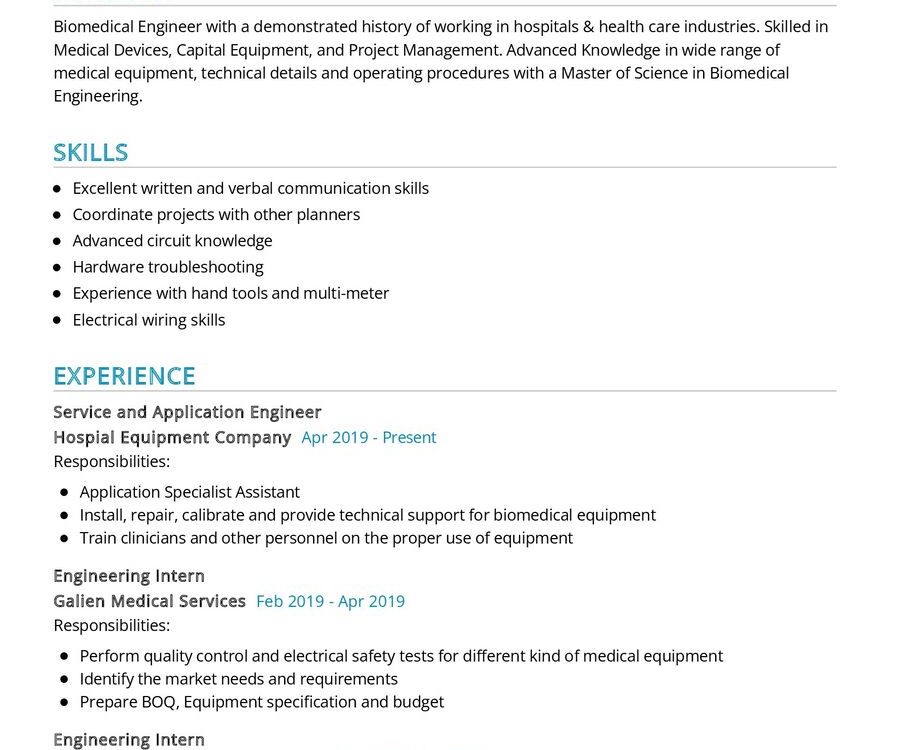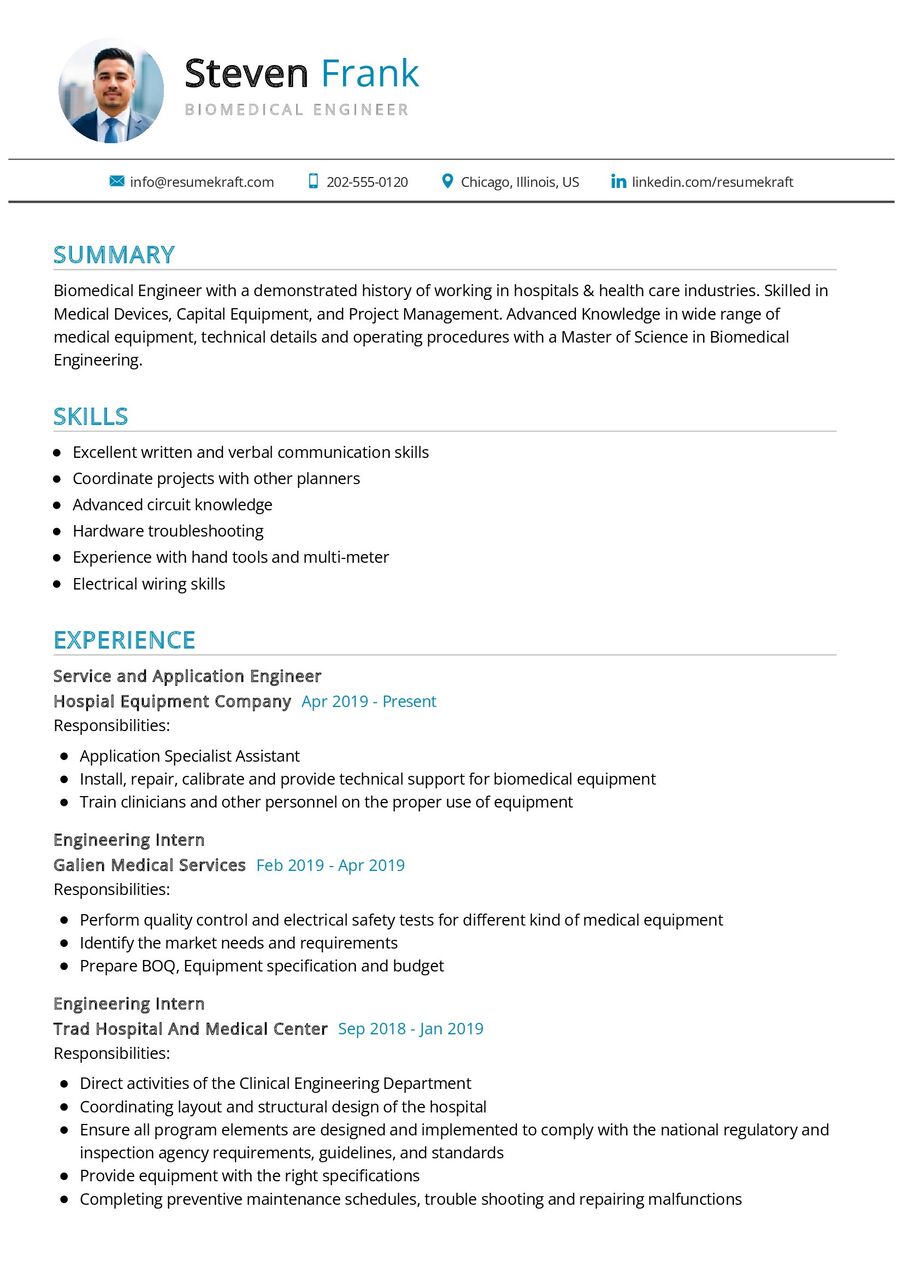What is the Role of a Biomedical Engineer?
In the ever-evolving landscape of healthcare technology, the role of a Biomedical Engineer has emerged as an indispensable asset in the field of medicine. A Biomedical Engineer combines the principles of engineering and biological sciences to design and create equipment, devices, computer systems, and software used in healthcare. Let’s delve deeper into the multifaceted role of a Biomedical Engineer, a position that demands a profound understanding of both engineering principles and medical practices.
A Biomedical Engineer is tasked with the responsibility of researching, designing, and developing medical products and equipment that improve the overall quality of healthcare services. They work closely with healthcare professionals to understand their needs and challenges, aiming to create innovative solutions that enhance patient care and treatment outcomes. Their role is crucial in bridging the gap between the medical and engineering worlds, contributing to advancements in medical technology and patient care.
What are the Biomedical Engineer Job Requirements?
Embarking on the journey of a Biomedical Engineer necessitates fulfilling specific requirements that are vital for success in this field. This path requires a strong educational foundation and a deep understanding of engineering principles, coupled with a passion for improving healthcare. Let’s explore the prerequisites essential for embracing the role of a Biomedical Engineer:
- A Bachelor’s or Master’s degree in Biomedical Engineering, or a related field, showcasing a strong foundation in both engineering and medical sciences.
- Proficiency in applying engineering principles to the design and development of medical equipment and devices.
- Experience in conducting research and collaborating with healthcare professionals to identify and address medical challenges.
- Strong analytical and problem-solving skills, essential for designing effective and efficient healthcare solutions.
- Excellent communication skills to work effectively in multidisciplinary teams and convey complex technical information to non-technical stakeholders.
- Understanding of regulatory standards and compliance requirements in the healthcare industry.
Attaining additional certifications or participating in relevant workshops and training programs can further enhance your profile and career prospects in this competitive field.
What are the Responsibilities of a Biomedical Engineer?
The role of a Biomedical Engineer encompasses a diverse array of responsibilities that contribute to the development and advancement of healthcare technology. Let’s explore the key responsibilities that define this role, each playing a significant part in the improvement of patient care and healthcare systems:
- Designing and developing medical devices and equipment, ensuring they meet quality and safety standards.
- Collaborating with healthcare professionals to understand their needs and challenges, and creating solutions that address specific medical requirements.
- Conducting research to improve existing medical equipment or develop new technologies that enhance diagnostic and treatment processes.
- Testing and evaluating medical products to ensure their effectiveness and safety for patient use.
- Providing technical support and training to healthcare staff on the proper use and maintenance of medical equipment and devices.
- Staying updated with the latest advancements in the biomedical field and integrating new technologies to improve healthcare practices.
Each responsibility demands a meticulous approach and a commitment to improving healthcare services and patient outcomes.
Biomedical Engineer CV Writing Tips
Crafting an impressive CV as a Biomedical Engineer requires a careful balance of technical expertise, research accomplishments, and a passion for improving healthcare. Here are some tips to help you effectively communicate your skills and experiences:
- Highlight your experience in designing and developing medical devices, emphasizing any innovative solutions you have contributed to.
- Include any research projects or publications that showcase your expertise and contribution to the field of biomedical engineering.
- Use metrics and specific examples to demonstrate the impact of your work on improving healthcare outcomes or processes.
- List any relevant certifications or specialized training that highlights your commitment to professional development in the biomedical engineering field.
- Personalize your CV for the specific role or company, aligning your skills and experiences with the requirements of the position.
Each tip is aimed at helping you create a compelling CV that effectively communicates your skills, expertise, and passion for biomedical engineering.
Biomedical Engineer CV Summary Examples
Your CV summary is the first impression you make on potential employers, summarizing your key qualifications and experiences. It should be concise, impactful, and tailored to the specific role you are applying for. Here are some examples to inspire you:
- “Biomedical Engineer with a strong background in medical device design and development, adept at translating complex technical requirements into innovative solutions that improve patient care.”
- “Dedicated Biomedical Engineer experienced in collaborative research and development, passionate about integrating cutting-edge technology to enhance diagnostic and treatment processes.”
- “Experienced Biomedical Engineer with a track record of successful medical equipment design, committed to ensuring the safety and efficacy of healthcare devices for improved patient outcomes.”
Each summary serves as a compelling introduction, highlighting your key strengths and contributions in the field of biomedical engineering.
Create a Strong Experience Section for Your Biomedical Engineer CV
Your experience section is where you demonstrate the practical application of your skills and knowledge in the field of biomedical engineering. It is an opportunity to showcase your contributions and achievements in previous roles. Here are some examples to guide you:
- “Led a team in the development of a novel medical device, resulting in a 30% improvement in patient diagnosis and treatment accuracy.”
- “Collaborated with healthcare professionals to identify critical needs in patient care, leading to the successful design and implementation of a customized medical solution.”
- “Conducted extensive research on the efficacy of existing medical equipment, leading to the identification of key areas for improvement and the successful development of a next-generation medical device.”
Each experience highlights your leadership, problem-solving, and research skills, emphasizing your impact on improving healthcare outcomes.
Sample Education Section for Your Biomedical Engineer CV
Your educational background is a cornerstone in establishing your expertise and knowledge in the field of biomedical engineering. It is essential to highlight your academic achievements and any relevant certifications that showcase your commitment to professional development. Here’s how you can list your educational milestones:
- Master of Science in Biomedical Engineering, XYZ University, a journey of advanced learning and specialization, 2018.
- Bachelor of Science in Engineering, ABC University, the foundation of your engineering career, 2014.
- Certified Biomedical Engineer (CBE), a recognition of your expertise and commitment to excellence in the field of biomedical engineering, 2019.
Each educational qualification serves as a testament to your dedication to the field and your continuous pursuit of knowledge and expertise.
Biomedical Engineer Skills for Your CV
Your skill set as a Biomedical Engineer is a combination of technical expertise and soft skills that contribute to your success in the field. Let’s list down the essential skills that a Biomedical Engineer should possess:
Technical Skills:
- Proficiency in medical device design and development, a skill crucial for creating innovative healthcare solutions.
- Knowledge of medical imaging and diagnostic equipment, essential for understanding and improving medical diagnostic processes.
- Familiarity with regulatory standards and compliance requirements in the healthcare industry, vital for ensuring the safety and effectiveness of medical devices.
- Expertise in biomedical signal processing, a skill that aids in the analysis and interpretation of medical data.
- Understanding of bioinformatics and computational biology, necessary for utilizing computational tools in biological research and medical applications.
Soft Skills:
- Strong analytical and problem-solving abilities, essential for identifying and addressing complex healthcare challenges.
- Effective communication and collaboration skills, crucial for working in multidisciplinary teams and conveying technical information to non-technical stakeholders.
- Attention to detail and critical thinking, necessary for ensuring the accuracy and reliability of medical devices and equipment.
- Adaptability and resilience, important for navigating the dynamic and evolving landscape of healthcare technology.
- Innovation and creativity, essential for designing novel solutions that improve patient care and treatment outcomes.
Each skill is a valuable asset that contributes to your effectiveness as a Biomedical Engineer, enhancing your ability to make a significant impact in the field of healthcare technology.
Most Common Mistakes to Avoid When Writing a Biomedical Engineer CV
As you craft your CV, it is essential to steer clear of common pitfalls that can hinder your chances of securing your dream job. Here we list down the mistakes often seen in CVs and how to avoid them:
- Avoid providing vague or generic information that does not highlight your specific contributions or achievements in the field of biomedical engineering.
- Avoid overstating your skills or experiences, as it may create unrealistic expectations that you cannot fulfill in the role.
- Ensure your CV is well-structured and easy to read, avoiding cluttered formats or excessive use of technical jargon that may confuse the reader.
- Proofread your CV thoroughly to eliminate any spelling or grammatical errors, as these can create a negative impression of your attention to detail and professionalism.
- Customize your CV for each application, highlighting the skills and experiences that align with the specific requirements of the role and the company you are applying to.
Avoiding these mistakes will ensure that your CV effectively communicates your unique qualifications and experiences as a Biomedical Engineer, increasing your chances of securing your desired position.
Key Takeaways for Your Biomedical Engineer CV
As we reach the end of this comprehensive guide, let’s recap the key points to keep in mind while crafting your Biomedical Engineer CV:
- Emphasize your contributions to the field of biomedical engineering, highlighting your innovative solutions and impact on improving healthcare outcomes.
- Showcase your technical expertise in medical device design and development, demonstrating your ability to create effective and reliable healthcare solutions.
- Highlight your research initiatives and publications, showcasing your commitment to advancing the field of biomedical engineering through continuous learning and exploration.
- Personalize your CV for each application, aligning your skills and experiences with the specific requirements of the role and the company you are applying to.
Finally, feel free to utilize resources like AI CV Builder, CV Design, CV Samples, CV Examples, CV Skills, CV Help, CV Synonyms, and Job Responsibilities to create an outstanding application and prepare for the [Biomedical Engineer] job interview questions.


